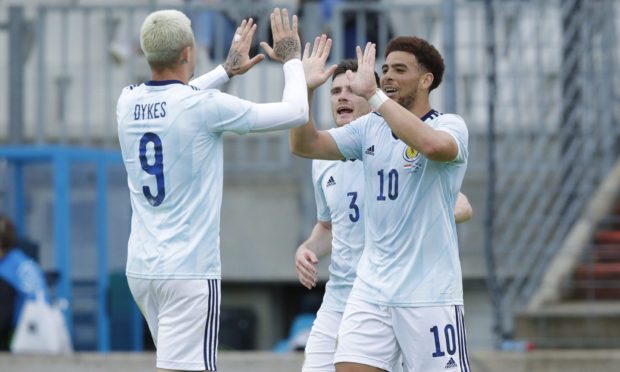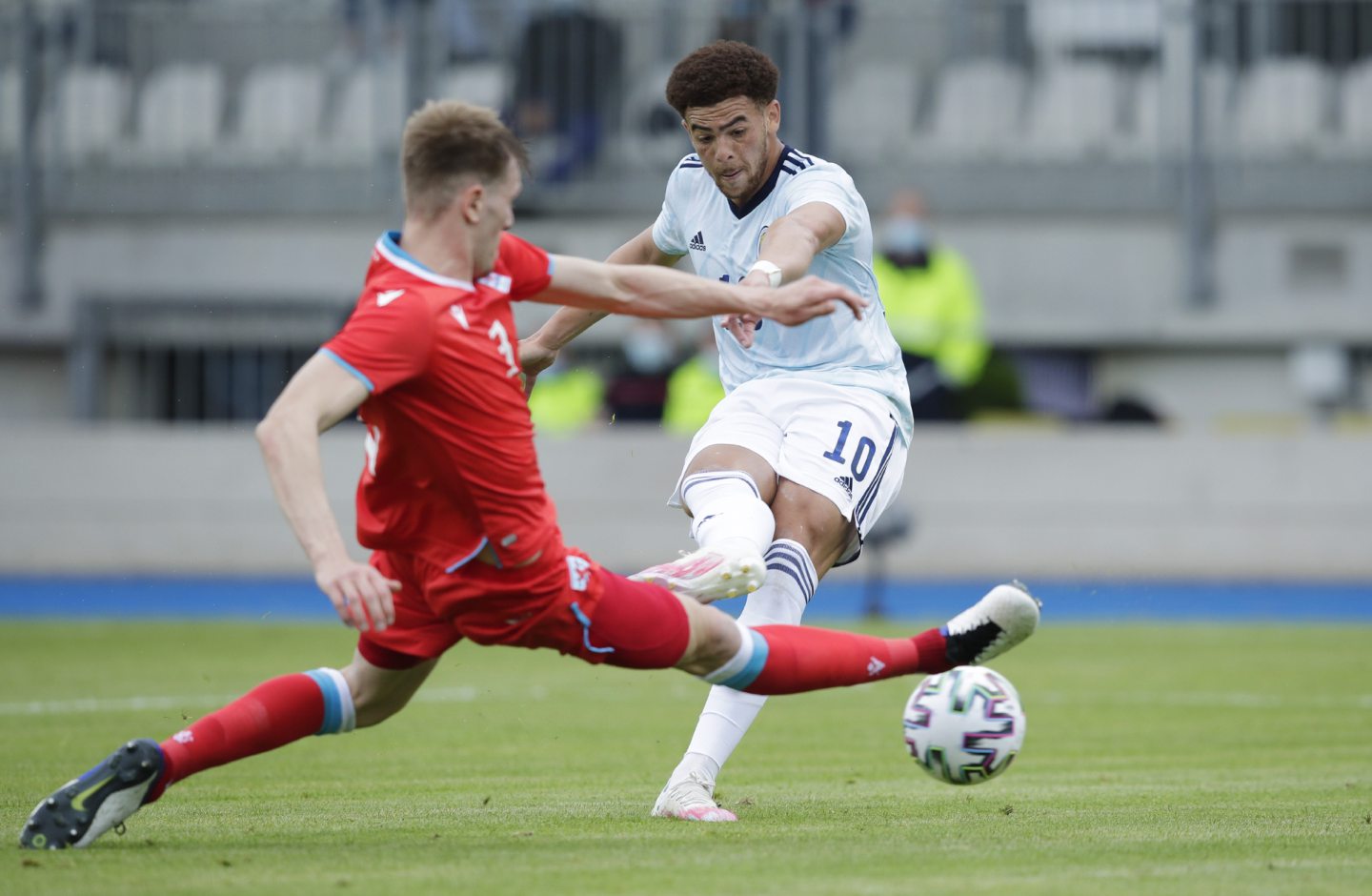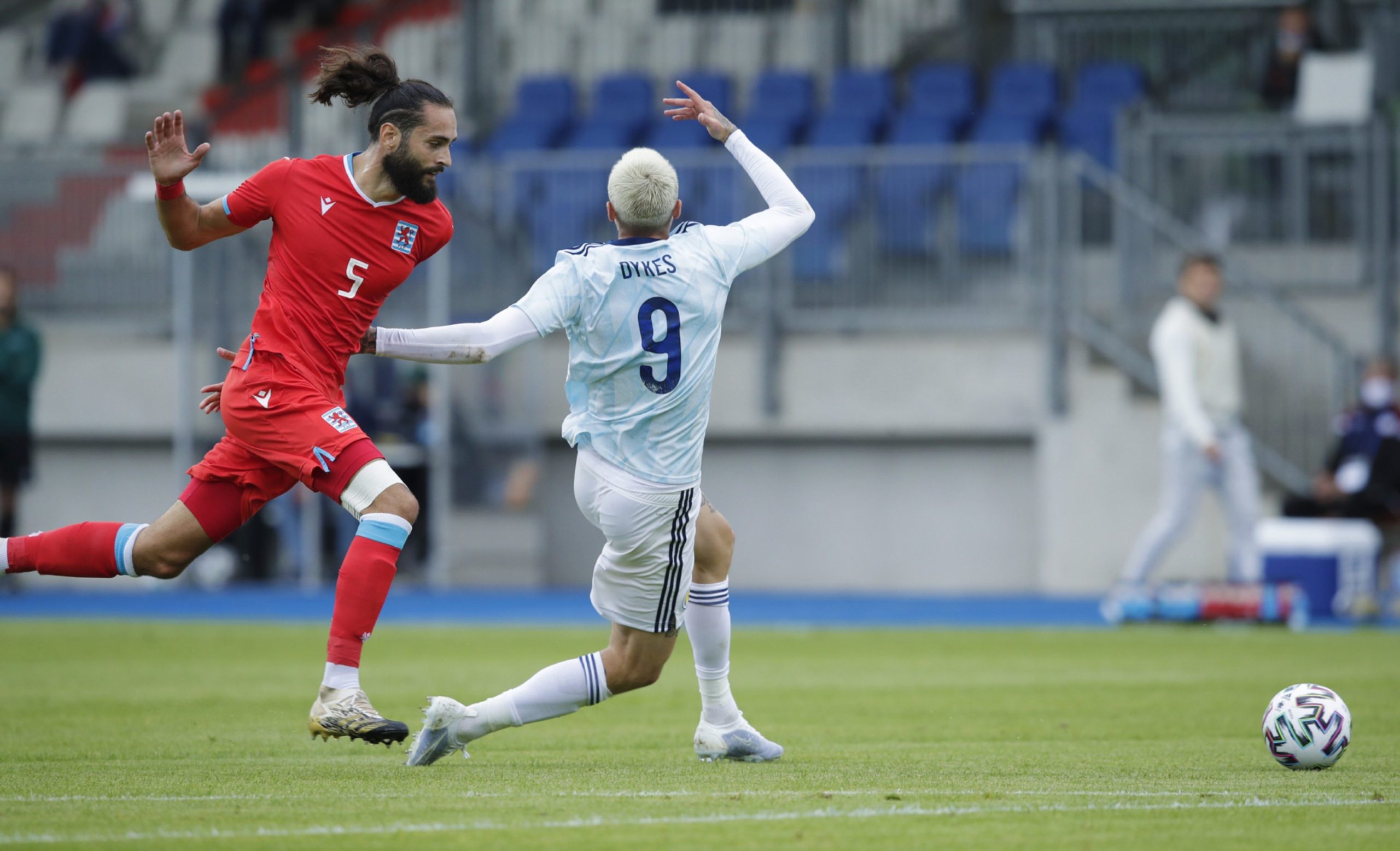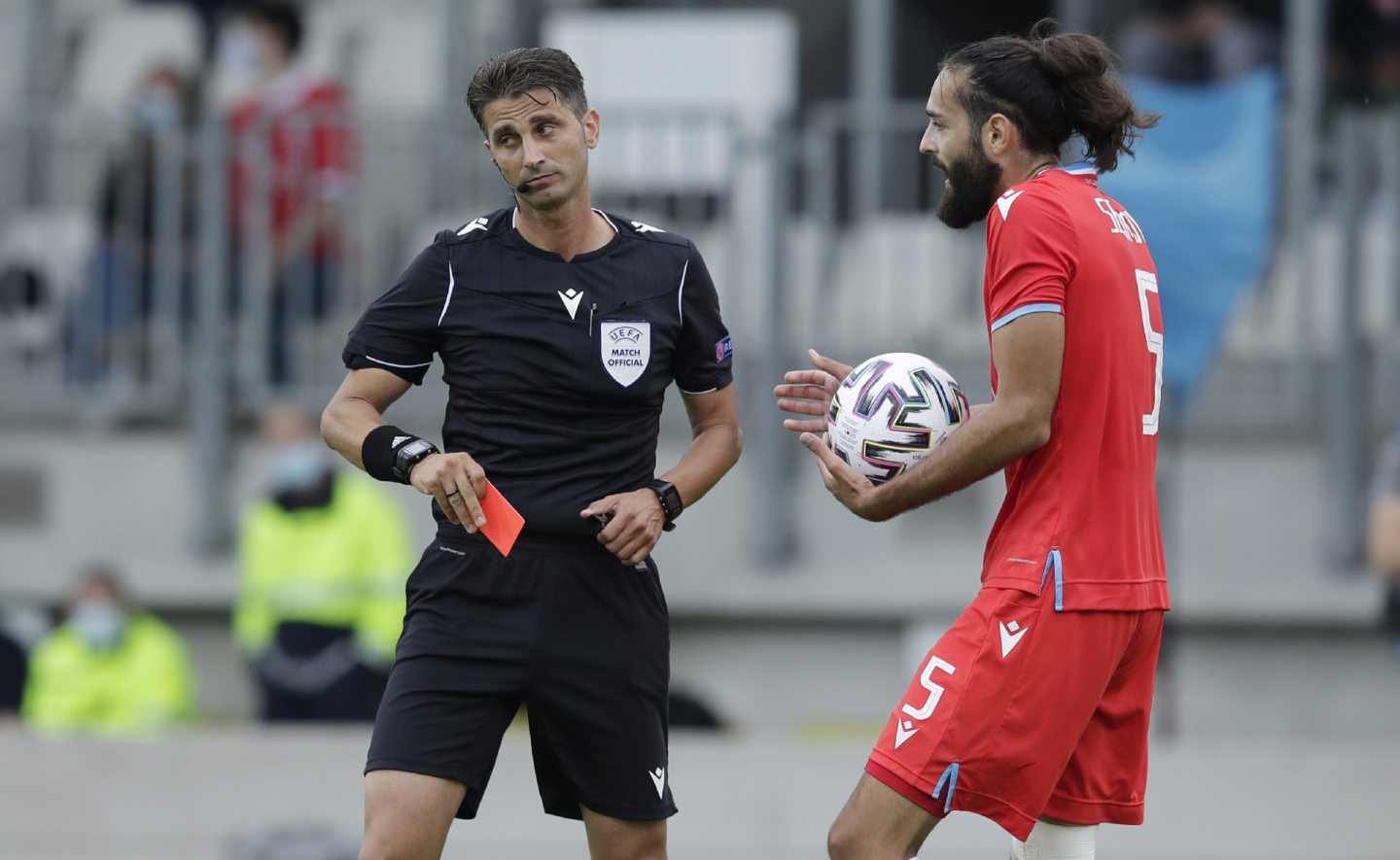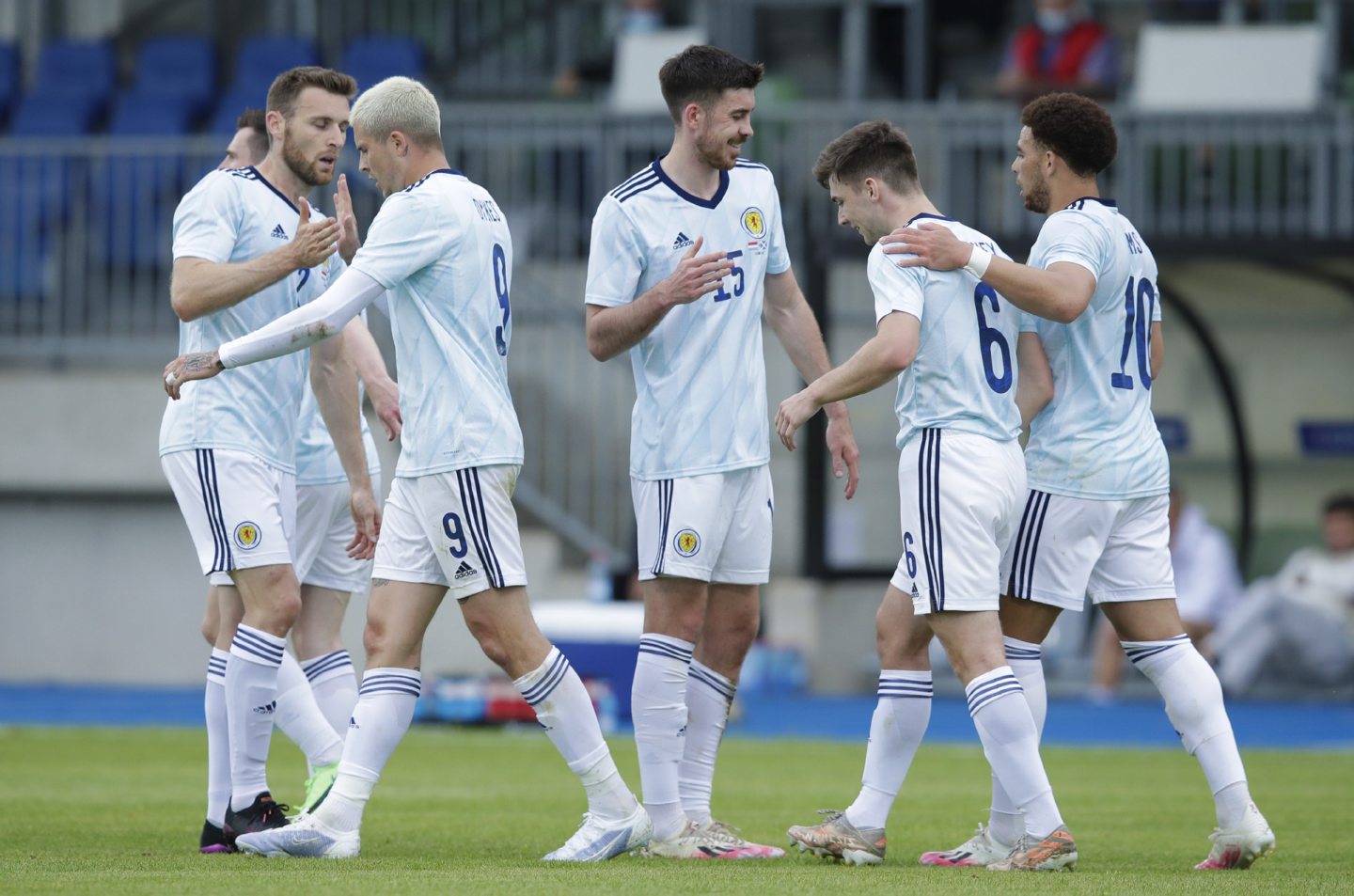Scotland manager Steve Clarke faces a striker dilemma ahead of the Euro 2020 opener against the Czech Republic.
Clarke has to make a call on whether to be bold and start with a two-pronged attack of Lyndon Dykes and Che Adams – or leave one centre-forward on the bench.
If he opts against retaining faith in the strike partnership of Adams and Dykes that started in the 1-0 defeat of Luxembourg, who does he leave on the bench?
Although Dykes and Adams are building an understanding they were wasteful in front of goal against a side 96th in the FIFA rankings that were down to 10 men for almost an hour.
That sloppiness in front of goal must be eradicated for the opener against the Czechs at Hampden on June 14.
Dykes and Adams could both have hit a couple of goals had they been sharper with their finishing.
Despite that both strikers tick the boxes that indicate going with a a two-pronged centre-forward partnership against the Czechs would not be a gamble.
They both put in the graft, run the channels, battle and defend from the front which will be fundamental if Clarke goes with two up top.
Scotland will have to defend from the front and press high which the work-rate and hold up play of Dykes and Adams can both facilitate.
The potential vulnerability of the Czech Republic defence was underlined by a 4-0 friendly loss to Italy on Friday.
Having a go against the Czechs by letting Dykes and Adams loose against them could well pay dividends.
However they must be more lethal in front of goal.
Scotland will not have nearly as much chances against the Czechs – so they must make them count.
Clarke went with his preferred three at the back which becomes a five with wing backs Andy Robertson and Stephen O’Donnell dropping back when not in possession which ensures the Scots would not be over-run in midfield if Clarke opts to go with two up top.
🏴 @CheAdams_ opens the scoring in Luxembourg#LUXSCOpic.twitter.com/FqKGopD5hH
— Scotland National Team (@ScotlandNT) June 6, 2021
Adams netted and a had a goal ruled out for a soft foul on a defender whilst Dykes hit the post with a glancing header.
The duo combined to produce the opening goal when Dykes ran at goal and unselfishly laid off to Adams 15 yards out who rifled home with a low right footed curling effort.
They linked up yet again in the 35th minute when a disguised reverse pass from Adams released Dykes in on goal and Vahid Selimovic panicked and hauled back Dykes for a straight red card.
The starting XI at the Stade Josy Barthel, barring one or two tweaks, will be the side that starts against Czech Republic.
Along with the striker conundrum the only other real selection headache for Clarke for is the right-sided centre back role with new Aberdeen defender Declan Gallagher in contention.
Winning his ninth cap in starting in Luxembourg the 30-year-old was the central figure of back three with Grant Hanley on the right hand side and Kieran Tierney left.
Gallagher eased through the game and did all he can to strengthen the argument to start against Czech Republic.
After losing his starting slot in the World Cup qualifiers in March due to a hamstring injury Gallagher produced solid shifts in the friendlies against Netherlands and Luxembourg to force his way into contention to face the Czechs.
He faces a battle with Jack Hendry for that slot with Hanley likely to move inside to the central centre-half role against the Czechs.
Chelsea’s teenage midfielder Billy Gilmour also came on at half-time and produced a performance that indicated he will surely have an impact on the Euros.
His question is unquestionable but the opening game is so important Clarke will need his most experienced players in midfield.
Clarke will play three experienced midfielders – Callum McGregor, John McGinn and Scott McTominay.
It is unlikely Gilmour, who only earned his second cap, will start against the Czechs but he has the fearlessness and skill that could be crucial in the tournament.
Gilmour was forced off midway through the second half after a shocking challenge by Sebastian Thill.
